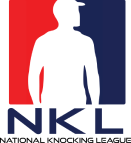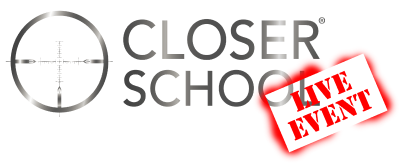Scheduling is a cornerstone of success in the dynamic realm of door-to-door (D2D) sales. Effective scheduling transcends mere organization; it’s a strategic tool that can significantly boost a sales team’s performance.
At D2D Experts, we’ve seen firsthand how adopting scheduling best practices can transform sales outcomes. Let’s explore the profound impact of these on sales teams and what you can do to harness this powerful tool.
Best Practices for Sales Scheduling
1. Leverage Technology
Advanced scheduling tools are indispensable in modern sales strategies. These tools, such as Customer Relationship Management (CRM) systems and specialized scheduling software, offer more than calendar functions and seamlessly integrate with other business platforms, sending reminders and providing valuable analytics.
For example, a CRM can analyze historical sales data to suggest the best times for calls or meetings, optimizing the sales rep’s schedule.
By automating administrative tasks, these tools allow sales reps to focus more on engaging with clients and closing deals. Imagine a scenario where a sales rep receives an automated reminder for a follow-up call with a prospect and a brief of previous interactions, all synchronized in their scheduling tool. This saves time and ensures a more personalized and informed approach to each client.
2. Prioritize Tasks
Effective task prioritization is vital to productive scheduling. Sales reps should identify and allocate specific times for high-priority tasks based on their productivity patterns. For instance, if an agent is most energetic and focused in the morning, they should schedule important calls or creative tasks like crafting personalized proposals.
Less demanding tasks, such as data entry or emails, can be set for when their energy levels naturally dip. This tailored approach to scheduling ensures that sales reps are working on the right tasks at the right time, thus enhancing overall efficiency and output.
3. Allocate Time for Prospecting
Prospecting, the process of identifying potential customers, is the lifeline of sales. It’s essential to dedicate specific time blocks solely for prospecting activities. This could include researching potential leads, making cold calls, or networking on social media.
For example, you can block two hours every Tuesday and Thursday morning exclusively for prospecting new leads. Consistency in this practice ensures a steady pipeline of prospects, which is critical for sustained sales success and avoiding dry spells in the sales cycle.
4. Incorporate Buffer Times
Including buffer times between appointments is crucial for effectively managing a sales rep’s day. These buffers account for travel time, preparation, and unexpected delays, reducing the stress of back-to-back appointments.
For instance, a sales rep might schedule a 15-minute buffer after a client meeting to jot down notes, travel to the following location, or catch their breath. This practice ensures that reps are punctual, mentally present, and prepared for each interaction, leading to better customer engagement and relationship building.
5. Regular Reviews and Adjustments
Sales schedules should be dynamic, adapting to the sales rep’s evolving needs and market conditions. Regularly reviewing and adjusting schedules based on performance data, client feedback, and changing circumstances can significantly enhance a sales rep’s effectiveness. For instance, if data shows that certain days or times yield higher engagement rates, a sales rep can adjust their schedule to capitalize on these peak periods.
Additionally, regular reviews can help identify time-wasting activities or processes that need streamlining. This continual process of evaluation and adaptation ensures that the sales strategy remains relevant and effective in an ever-changing business environment.
Understanding the Importance of Scheduling in Sales
Scheduling in sales is more than just organizing appointments. Optimizing time, resources, and energy is about maximizing sales opportunities for D2D sales teams, where every second counts; efficient scheduling can be the difference between meeting targets and falling short.
Here is how it makes a difference:
1. Time Management and Productivity
One of the most immediate benefits of effective scheduling is enhanced time management. By strategically planning their day, sales reps can prioritize high-value activities, minimize downtime, and avoid burnout. This leads to a more focused approach, where energy is spent on tasks that directly contribute to sales goals.
Learn more about how to manage your time effectively here.
2. Customer Engagement and Experience
Scheduled interactions allow for tailored customer experiences. Sales reps can better understand customer needs and offer personalized solutions when not rushed. This level of engagement improves customer satisfaction and increases the likelihood of successful conversions.
3. Data-Driven Decision Making
Scheduling tools often come with analytics capabilities. By analyzing peak times for successful sales, customer availability, and sales cycle duration, sales teams can make informed decisions about when and where to focus their efforts for maximum impact.
4. Team Coordination and Collaboration
Coordination is key.
Effective scheduling ensures everyone is on the same page, reducing overlaps and conflicts. This leads to a more cohesive team effort, where resources are utilized efficiently and opportunities are maximized.
5. Adaptability and Market Responsiveness
The best scheduling practices incorporate flexibility. Quickly adapting to market changes, customer availability, and unforeseen circumstances is crucial in the fast-paced sales landscape. Flexible scheduling allows sales teams to pivot as needed without losing momentum.
Scheduling Success Stories
At D2D Experts, we have witnessed the transformative power of effective scheduling in multiple scenarios. For example, a sales team that incorporated buffer times saw a 20% increase in customer satisfaction and a 15% rise in conversions. Another team that used data-driven scheduling reported a 25% increase in productivity.
Scheduling as a Strategic Tool
Effective scheduling can significantly enhance a sales team’s performance. By adopting scheduling best practices, sales teams can manage their time more effectively, engage with customers meaningfully, and ultimately drive higher sales success.
























